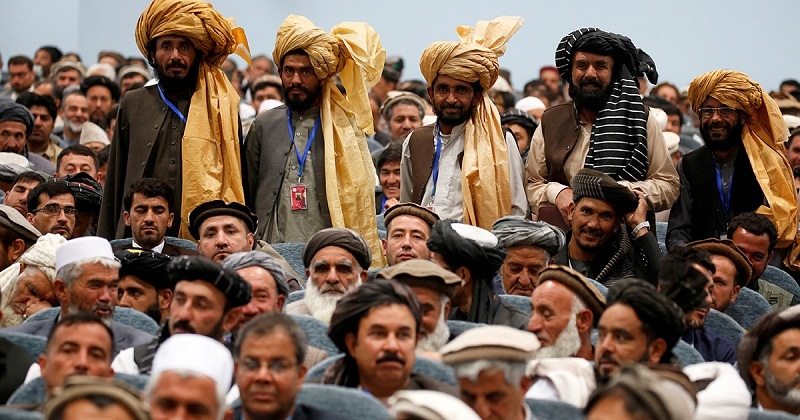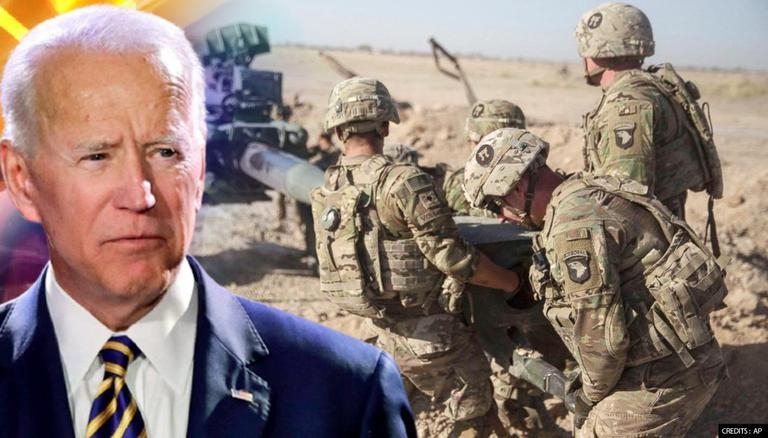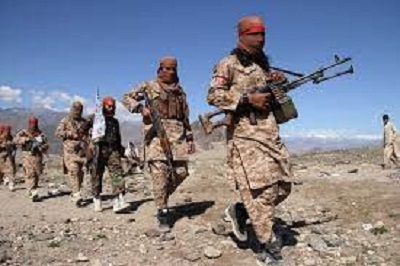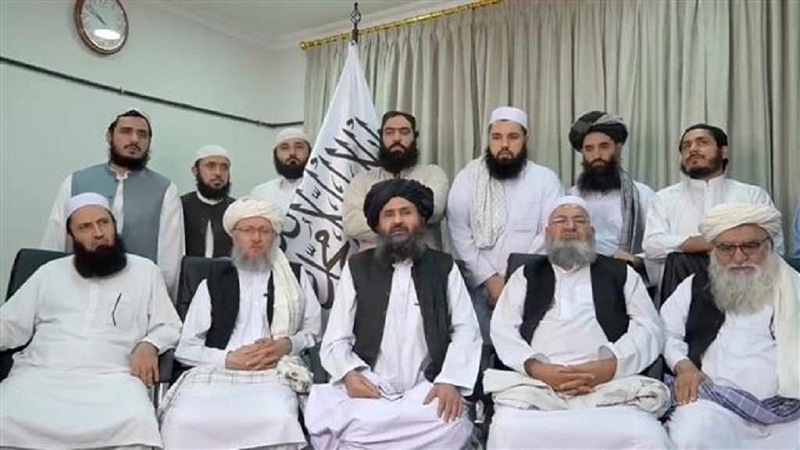Emerging Afghanistan Scenarios – Perspectives

A galaxy of political leaders, intellectuals, think tanks and human rights activists have expressed their views and concerns over the extraordinarily complex and fluid situation in Afghanistan. They include the US President Joe Biden, French President Emmanuel Macron, UK Prime Minister Boris Johnson, Canada Prime Minister Justin Trudeau, other EU leaders; Secretary of State Antony Blinken, Defense Secretary Lloyd Austin; former Ambassador to Afghanistan (2014–2016), P. Michael McKinley; Chairman of the Joint Chiefs of Staff Gen. Mark Milley, Former US Marine General John R. Allen (Present Brooking Institute), many former U.S. Veterans who served in Afghanistan; Anthony H. Cordesman, think tank CSIS; and a horde of media columnists including Peter Bergen, Susan Glasser, Fareed Zakaria, Ishaan Tharoor, Madiha Afzal, Daniel L. Byman,Vanda Felbab-Brown among many others.
Not to be left behind is the opinion in the Chinese media - Global Times, and the Pakistan media houses hailing the victory of the Taliban. Add to them, a large number of editors, anchors and panelists in India.
The Taliban has won the war against the U.S. Super Power. There is consensus that Pakistan created the Taliban, funded and supported them. Also, they have bred the Islamist jihadists in their backyard. No wonder, there are celebrations all over Pakistan. Even all Muslims world over are silently happy at the current outcome. “When history is written, it will be stated that the ISI defeated the Soviet Union in Afghanistan with the help of America,” Hamid Gul, a former ISI chief, said on television in 2014. “Then there will be another sentence. The ISI, with the help of America, defeated America.”
As per the US experts, the Afghan War consisted of many choices, many decisions, many policies, and many actions. But, all failed due to lack of understanding the complexity of Afghan society and affairs. Furthermore, they failed to learn from the lessons of mankind's wars - armies overstretching beyond their means and ways will ultimately collapse. Most important is the lesson of Vietnam War - Big Armies and Big Money cannot assure victory in counter insurgency wars. Let me highlight the oft quoted lesson – “Fools learn from their own lessons; Wise learn from others lessons”. Add to the quote that “Idiots refuse to learn from even their own past lessons.”

However, there is criticism with some calling it a worse than the 1975 fall of Saigon. German President Frank-Walter Steinmeier stated that “We are experiencing a human tragedy for which we share responsibility as the West.”
Now, Biden has promised a “swift and forceful” response if the Taliban attacks U.S. soldiers or disrupts evacuations at the airport. The US must realize that the “Peace Agreement” is dead. The US and the West failed to appreciate the “Will” of the Afghans and chemistry of its society and also, the wily Pakistanis. Democracy is an anathema to Muslim countries with Islamic Global Caliphate as end objective.
And, no longer can the Taliban be coerced into submission by the U.S. threatening to act if the Taliban fails to force al Qaeda, ISIS and other jihadist elements out of Afghanistan. The US image of trusted ally no more holds appeal. The US lost the wars against “Global Islamist Terrorism” and illegal narcotics trade. Also, the US stands defeated in promoting democracy as an ideology and nation-building.
In sum, there are a whole range of perspectives in public domain over the emerging Afghan scenarios depending on one’s partisan leanings: New Modern and Moderate Taliban to totally radicalized Taliban. And, it is the present and future course of developments that needs to reviewed pragmatically and scenarios identified and defined with the past as the prim through which the future portends.
Ipso facto, the Taliban-ruled Afghanistan is now part of the new world order. How the new world order will traverse a new course is yet to unfold. Israel believes that "American allies in the Middle East, including Israel, would find it difficult to rely on Washington's assurances and the important lesson for them would be to focus on building their own capability to counter threats."
Undeniably, the geopolitics of the Middle East will be redefined. Iran, Turkey, Iraq, Syria and others want the US out of the Middle East. Iran, besides Pakistan, has played a significant role in funding and equipping the Taliban and has directly contributed to this victory. They supported, assisted, funded and armed Jihadists, particularly to run the campaign to kill the US and British forces in Afghanistan.
 Russia shares China’s concerns about instability. The former Soviet states in Central Asia are vulnerable to Islamist jihadists. Just as China will not want the Taliban harboring ethnic Uyghur groups, any support for Islamist movements in its backyard, similarly it would be unacceptable for Moscow. However, none can rule out the prospects of Russia and China in collusion with Pakistan using Taliban as a weapon against the West particularly the U.S. and also India. After all, they cannot be expected to squander the golden window of opportunity ajar to exploit. Already, they have announced its intent to aid rehabilitation and reconstruction of Afghanistan. Recognition of the Taliban regime is bound to follow sooner than later.
Russia shares China’s concerns about instability. The former Soviet states in Central Asia are vulnerable to Islamist jihadists. Just as China will not want the Taliban harboring ethnic Uyghur groups, any support for Islamist movements in its backyard, similarly it would be unacceptable for Moscow. However, none can rule out the prospects of Russia and China in collusion with Pakistan using Taliban as a weapon against the West particularly the U.S. and also India. After all, they cannot be expected to squander the golden window of opportunity ajar to exploit. Already, they have announced its intent to aid rehabilitation and reconstruction of Afghanistan. Recognition of the Taliban regime is bound to follow sooner than later.
China is invested in Afghanistan’s stability, but it has no interest in political or military intervention. China too paid the Taliban to chase and kill rebel leaders. China looks for the strategic mineral resources particularly copper, besides consolidation and advancement of its economic interests and BRI. Nonetheless, even China and Russia have their Islamist jihadist challenges to face and overcome.
For sure, India will be kept out by both Pakistan and China, particularly its developing strategic relationship with the US in the QUAD. Few nations have as much to lose in Afghanistan as India, whose security interests are threatened by both the Taliban’s cooperation with anti-India terrorist groups and China’s growing footprint,
Experts have expressed quite a few concerns over the emerging situation in Afghanistan. Some of them apprehend the consolidation and advancement of a “Jihadist state”. After all, the Taliban has already released al Qaeda, ISIS and jihadist prisoners in Kabul and other cities. Surely, they would be reinforced by other foreign jihadists from Iraq, Syria, Pakistan and other nations from across the world.
Meanwhile, Gen. Mark Milley, Chairman of the Joint Chiefs of Staff, stated to the US Congress that “terrorist groups like al Qaeda could reconstitute in Afghanistan sooner than the two years defense officials had previously estimated because of rapid Taliban takeover of the country. The situation could result in a greater counterterrorism threat, he acknowledged.”
Peter Bergen wrote “For the global jihadist movement, the victory of the Taliban will be as significant as ISIS victories were in Iraq and Syria.... Just as they did after those ISIS victories, many thousands of foreign fighters are likely to pour into Afghanistan to join the victorious ‘holy warriors’ and receive military training.” Susan Glasser seconds Bergen’s warning: “The possibilities, from large-scale human-rights atrocities to a new center for international jihadist terrorism, are bloodcurdling”.
Experts in hindsight view peace talks in Doha, Moscow and Istanbul have been used by the Taliban as “Smoke screen”. Under the original agreement with the US, the Taliban are committed to prevent terrorist groups from operating in Afghanistan and are expected to evict these groups from Kabul in the next few days. Will the Taliban honor its commitment? They can ill afford to do it as of now. At the same time, the Taliban warned that US troops in Afghanistan must leave by Sept. 11—the anniversary of the terrorist attacks that launched the US into the war. The Taliban’s spokesperson stated that “we are committed not to attack them, but he stressed they have to leave by that date. It’s not clear what will happen if American forces remain in Afghanistan after Sept. 11."
Haibatullah Akhundzada is currently the Taliban's supreme leader with authority over political, religious, and military affairs. Mullah Abdul Ghani Baradar heads the political office of the Taliban. Sirajuddin Haqqani leads the Haqqani network and oversees financial and military assets across the Pakistan-Afghanistan border. Mullah Yaqub, son of the late Mullah Omar, founder of the Taliban is the ‘Chief of Operations’
The Taliban have already engaged former President Hamid Karzai, Tajik leader and former CEO of Afghanistan Abdullah Abdullah and Hezb-e-Islami chief Gulbuddin Hekmatyar seeking support in forming the next government of Afghanistan. Meanwhile, Ex-Vice President Saleh has shifted his base to Panjshir Valley and has raised the spectre of revolt against the Taliban.

The Taliban have sought to project greater moderation; but many remain skeptical. One spokesman of the Taliban stated that “they would not seek retribution against former soldiers and members of the Western-backed government, adding the movement was granting amnesty for former Afghan government soldiers as well as contractors and translators who worked for international forces.”
Yet another Taliban spokesman tweeted that fighters had been instructed to protect “life, property and honor”; and “it will stay out of the upscale diplomatic quarter housing the US Embassy complex.” But scenes on the ground in Kabul tell a different story. Fear and uncertainty prevails in Kabul. Equally worrisome is the likelihood of the Taliban re-imposing the “Strict Sharia Law” going back to “dark, aggressive and violent rule like before” and “nothing different than 2001”.
Currently, the Taliban is facing a major challenge to ensure security of Kabul. The highly complex relationship between the Pakistan government - the Taliban, the Afghan Taliban, the Pakistani Taliban, Al Qaeda and other Jihadists like Islamic State (IS), Jaish e-Mohammed (JeM) and Lashkar-e-Taiba (LeT) and many others - will continue. In what form it would rollout within Pakistan and spillover into the neighborhood is quite unpredictable as of now.
A large number of fighters belonging to them have entered Afghan capital Kabul. They are not under the control of the Taliban. They may also establish strongholds/bases in Kabul and other cities. Meanwhile, Jihadists across the globe will be emboldened to seek a safe haven in pursuit of Jihadist end objectives. So, the real challenge in the next few days for the Taliban is going to be to assert their authority and reign in Islamist jihadists in Kabul and other cities. Can the Taliban ensure Afghanistan remaining free of Islamist jihadist groups and violence?
Most important, what if the jihadist terrorist elements get control of nuclear material in Pakistan? Also, unrest in the country and drying up of foreign funds is bound to trigger an economic and humanitarian crisis that is likely to leave many Afghans dependent on the narcotics trade for survival. The refugee exodus is bound to flow through Turkey into the Europe and the U.S. besides neighboring countries. In reality, the Taliban is second name of ISIS or al Qaeda or HAMAS or etc. The next target will be France, UK, US and even Pakistan and other Muslim countries if they don't follow strict SHARIA. UK and Germany will soon be repenting their liberal immigration policies with more terror strikes.
Finally, few experts believe that the Taliban do not have the financial self sustaining capability. Taliban has proved such assessments as patently absurd. In the fiscal year 2020, the Taliban reportedly raked in $1.6 billion with the opium trade. Also, they can depend on returns from Chinese mining operations and their aid. They may also receive covert financial contributions from private donors and international institutions across the globe - Turkey, Iran, Pakistan and others.
Viewed in the above geo political evolving context and content, India must calibrate its strategic initiatives to counter challenges and exploit opportunities. After all, the Taliban-Pakistan-Turkey nexus is real. China is also in the game. Even the Indian Muslim Wakf Board member and MP of SP have also hailed the Taliban victory. India must prepare to deter, dissuade and counter the worst case scenario that may engulf in J & K and interiors. Nuanced responses is therefore, the need of the hour as opposed to emotional and sentimental responses.
